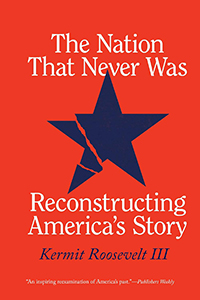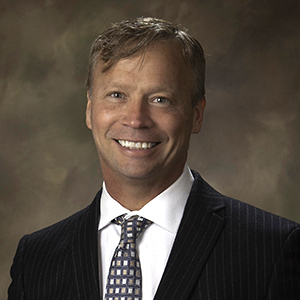Interview with Kermit Roosevelt III


Kermit Roosevelt III
author of "The Nation That Never Was: Reconstructing America's Story"

Michael Carter
Co-Host
Kermit Roosevelt III, author of "The Nation That Never Was: Reconstructing America's Story"
Kermit Roosevelt III's Website
Kermit Roosevelt III’S father, also named Kermit, was a son of Kermit Roosevelt Jr. and a great-grandson of President Theodore Roosevelt. is a professor of constitutional law at the University of Pennsylvania Law School, a former clerk for Supreme Court Justice David Souter, a member of the Presidential Commission on the Supreme Court, and an award-winning author.
A frequent op-ed contributor, his work has appeared in The New York Times, the Foreign Policy Research Institute, The Washington Times, TIME, Newsweek, and The Hill, among many other outlets. He serves as a media expert and keynote speaker, discussing topics including the Supreme Court, civil rights, U.S. presidential history, leadership, American politics, patriotism, and U.S. current events.
Roosevelt is among a small group of Super-forecasters who predict political and world events with more accuracy than several of the world’s intelligence services. Their unique skills are invaluable to companies and organizations — from global financial services to manufacturers — in their strategic planning.
Roosevelt is a board member of the Theodore Roosevelt Library and Museum Foundation, the U.S. Presidential Scholars Foundation, and the National Constitution Center’s Coalition of Freedom. He is a distinguished research fellow of the Annenberg Public Policy Center at the University of Pennsylvania and a member of the American Law Institute. In November 2014, the American Law Institute announced that he had been selected as the Reporter for the Third Restatement of Conflict of Laws. He is also a lecturer for Kaplan Bar Review and prepares students in all 50 states for the Constitutional Law portion of the bar exam.
As a novelist, Roosevelt illuminates important social, cultural and political issues in America. His works include Allegiance, the Foreign Policy Research Institute Book of the Week and a Richmond Times-Dispatch Best Book of the Year, and In the Shadow of the Law, winner of the Philadelphia Athenaeum Annual Literary Award, a national campus bestseller, New York Times Book Review Editors’ Choice Selection, and a Christian Science Monitor Best Book of the Year. His nonfiction books include Conflict of Laws and The Myth of Judicial Activism: Making Sense of Supreme Court Decisions.
Born in Washington, DC, he attended Harvard University and Yale Law School, and is the great-great-grandson of President Theodore Roosevelt.
Our idea of the Founders’ America and its values is not true. We are not the heirs of the Founders, but we can be the heirs of Reconstruction and its vision for equality.
There’s a common story we tell about America: that our fundamental values as a country were stated in the Declaration of Independence, fought for in the Revolution, and made law in the Constitution.
But, with the country increasingly divided, this story isn’t working for us anymore—what’s more, it’s not even true. As Kermit Roosevelt argues in this eye-opening reinterpretation of the American story, our fundamental values, particularly equality, are not part of the vision of the Founders. Instead, they were stated in Lincoln’s Gettysburg Address and were the hope of Reconstruction, when it was possible to envision the emergence of the nation committed to liberty and equality.
We face a dilemma these days. We want to be honest about our history and the racism and oppression that Americans have both inflicted and endured. But we want to be proud of our country, too.
In The Nation That Never Was, Roosevelt shows how we can do both those things by realizing we’re not the country we thought we were. Reconstruction, Roosevelt argues, was not a fulfillment of the ideals of the Founding but rather a repudiation: we modern Americans are not the heirs of the Founders but of the people who overthrew and destroyed that political order.
This alternate understanding of American identity opens the door to a new understanding of ourselves and our story, and ultimately to a better America.
America today is not the Founders’ America, but it can be Lincoln’s America. Roosevelt offers a powerful and inspirational rethinking of our country’s history and uncovers a shared past that we can be proud to claim and use as a foundation to work toward a country that fully embodies equality for all.